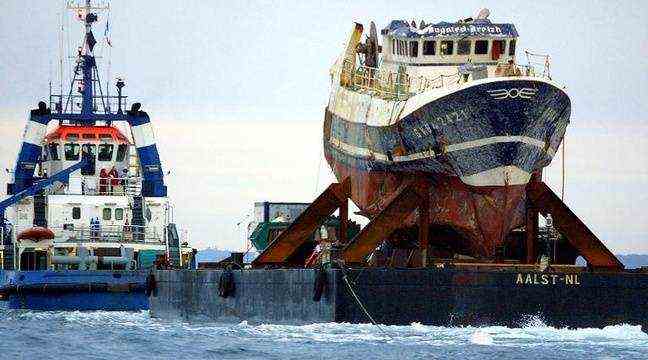He believes he has “too much evidence to examine” and be unable to deliver his conclusions this Friday as he had initially planned. Proof that the thorny issue of the sinking of the Bugaled Breizh has not yet delivered all its truths. Nigel Lickley, the British judge sitting since October 4 at the High Court of London to examine the conditions of this accident, preferred to postpone his decision. A hearing is scheduled for Thursday to determine a new date.
For two weeks, the English justice examines the conditions of the sinking of this Breton trawler registered in Loctudy (Finistère), carried to the bottom in only 37 seconds while it was fishing off the southern coast of England. The five sailors on board had perished in this still unexplained shipwreck.
After nearly three weeks of hearings, the hypothesis of the collision with a military submarine, favored by the families of the victims, has moved away in favor of that of an accident with the fishing equipment having gripped the merits, defended by an expert at the hearing. “There is a lot of evidence to consider,” Justice Nigel Lickley said at the hearing. “So I don’t think it’s feasible for me to make my decision this week. A new date will be discussed at a hearing scheduled for Thursday.
An English submarine suspected by families
The presence of three submarines (the Dutch Dolfijn, the German U22 and the British Torbay) was certified in the area, while military exercises were to take place there or were being prepared. But the suspicions of the families are on another submarine, the British Turbulent. Before the High Court, the Dutch Navy and the Royal Navy ruled out any involvement, the latter pointing out that the Turbulent was docked in Devonport on the day of the sinking.
French justice, after long years of investigations closed in 2016, could not decide between the hypothesis of a submarine and that of a fishing accident. Before being reopened, the proceedings launched in England because of the two bodies recovered from British waters had been suspended to give precedence to French justice.

